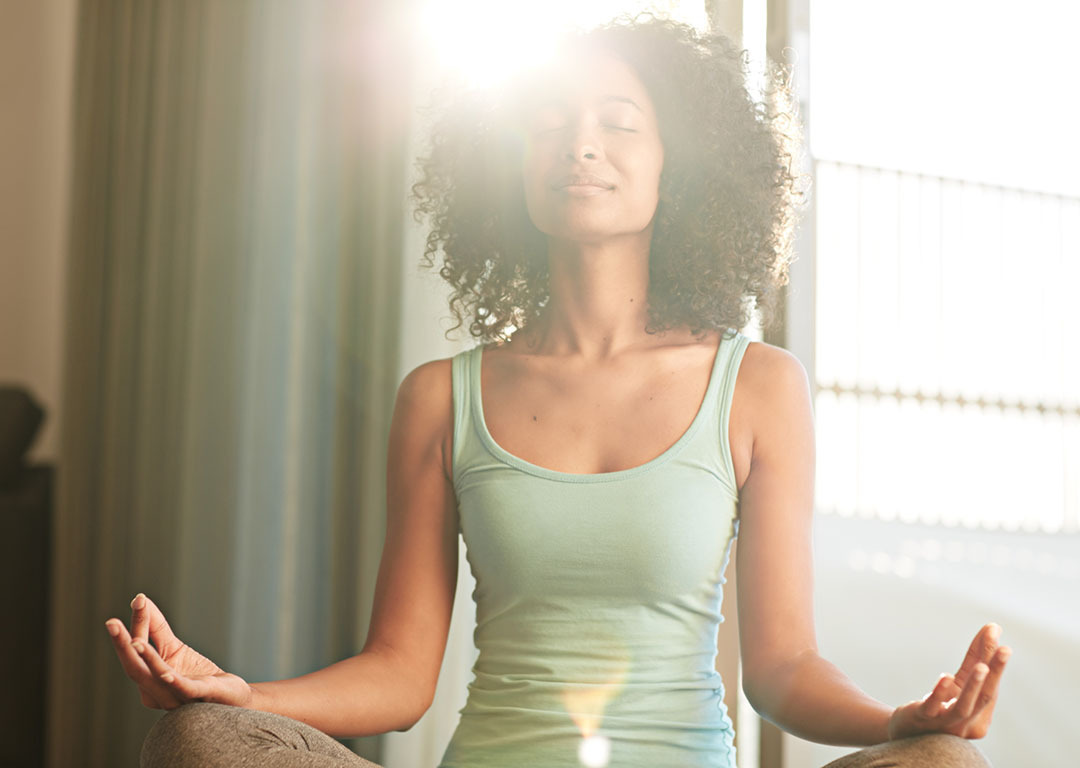Everyone from Gwyneth Paltrow to Russell Brand has jumped on the breathwork bandwagon. From peaceful breath-focused meditations to the icy lake-leaping dramatics of iceman Wim Hof, breathwork (formerly known as breathing) has gone mainstream.
The concept of breath as a conduit of life force energy – qi or prana – goes back thousands of years. Although wellness gurus and influencers are now taking breathwork to the extreme, deep breathing exercises have long been a staple of therapies such as CBT, wellbeing practices such as yoga and mindfulness meditation, and emotional regulation to help support those suffering with PTSD and other mental health issues.
The bonus of breathwork is that it’s free – unless you have an urge to splash out on a retreat – and you can do it anywhere.
Before you sigh deeply and move on, there are good reasons why this is phenomena is so popular right now. Think about the past year. A potentially deadly respiratory diseases has gripped the planet. We realise that breath is a precious commodity. It not only keeps you alive, but can be employed to de-stress, calm your mind or even help you feel energised and build resilience.
Studies have shown that deep breathing (known as diaphragmatic breathing) can trigger your relaxation response and improve concentration. It can also be effective in managing anxiety and trauma – some people report an emotional release. If you practice yoga, you will know that breathing deeply increases your flexibility as your muscles relax.
While breathwork isn’t a cure-all, it is a very powerful self-care tool. Knowing you have the ability to relax yourself through deep breathing can be empowering and liberating. You can face challenges knowing that you can take a few deep breaths to clear your mind and calm your nerves.
While there are many variants of breathwork (see below) there are essentially two important factors that enable you to reach states of calm:
If you are a little stressed right now, you may notice that when you try to breathe deeply, taking the breath down into your lungs isn’t easy or pleasant.
If you are in fight-or-flight mode, your breathing can be shallow and seems to stop at the top of your chest or throat. You may even feel dizzy or panicky if you try to take deep breaths.
This is why you need to practice breathwork.

Begin by counting and increase the number as your ability improves. Start with 2 in-2 out breathing (remember, count slowly in seconds) and work up to 5-5 and eventually, 5-7. One theory suggests that it is the long out breath that activates the parasympathetic nervous system, deactivating fight-or-flight mode.
Another reason to practice is to prove to yourself that it works: notice how much calmer you feel after breathwork. Now the message ‘doing this makes me feel calm’ is stored in your brain.
The more you practice your breathing techniques, the easier and more natural it feels.
Set aside five minutes of your day to practice. Find somewhere quiet, sit comfortably with a straight back. You may want to use guided breathing meditations online at first, but it’s so easy once you get the hang of it: simply set a timer on your phone.
Box breathing
1. Breathe in for a slow count of four. 2. Hold for four. 3. Exhale for four. 4. Hold again for four. Repeat. Holding your breath allows your body to replenish oxygen.
Good for: blood pressure, anxiety, panic disorder, PTSD symptoms, pain-management.
Diaphragmatic or belly breathing
Put your hand on your stomach and as you breathe in, feel it expand. As your lungs expand, they push down on your diaphragm which in turn makes your abdomen stick out. Now, when you breath out slowly, observe how your shoulders drop and relax.
Good for: stress, IBS, depression, insomnia, PTSD symptoms, lowers risk of muscle injury.
Pursed lip breathing
Breathe in deeply, filling your belly, then breathe out slowly through pursed lips.
Good for: asthma and lung conditions, stress-reduction.
4-7-8 breathing
First place the tip of your tongue at the roof of your mouth. Inhale through your nose for four, hold for seven and exhale through your mouth for eight counts making a whooshing sound. Repeat four times. Based on ancient pranayama yoga breathing, this technique has been called a natural tranquiliser for the nervous system.
Good for: insomnia, deep relaxation, stress.
Alternate nostril-breathing
Use your right thumb and forefinger to close and release alternate nostrils. Close your right nostril with your thumb, breathe in and release your thumb. Close your left nostril, breathe out, breathe in then release your thumb. Close your right nostril with your thumb, breathe out, breathe in. Continue. It’s a bit of a challenge but you’ll soon get it.
Good for: lungs, respiratory and cardiovascular function, metabolism, stress.
If you want to deepen your practice there are some great workshops here in the UK:
The Breathing Room – workshops, one-to-ones, online, or in person London or Wales – also offers lessons for children
Breathing Tree – retreats, workshops, one-to-ones and online sessions. London based.
Transformational Breath Foundation UK – introductory sessions, workshops and training programmes.

Savant Spy
1st April 2021
Spy Likes:
Clever, inspiring design, sublime views, a vast, clean and empty pool, solitary relaxation areas to read, write or commune with my muse.
Spy Dislikes:
Small talk, discussions about spirituality or astrology, any products containing tea tree oil or aloe (sadly am allergic), busy pools where you can’t do laps.
